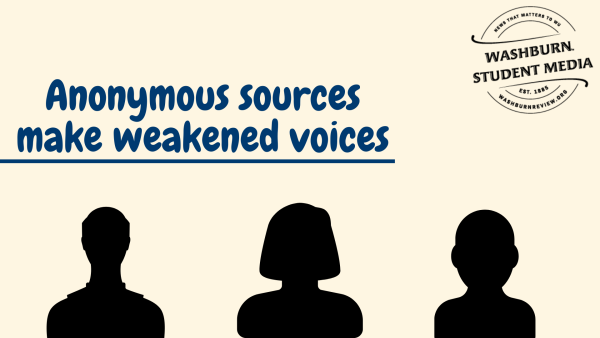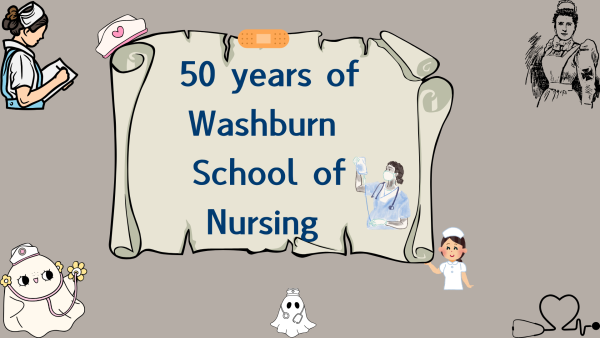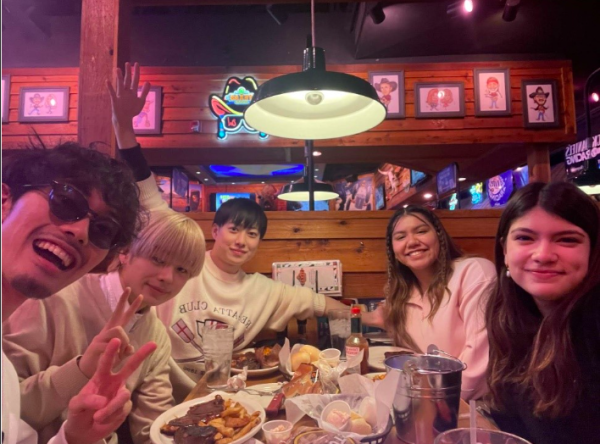Editorial: Environmentalism at Washburn
Environmentalism is becoming a more prominent movement across the nation. Change starts by discussing problematic situations and cultivating possible solutions. Student Media has some green propositions for Washburn and its community.
Is it necessary to keep lights on in campus buildings that are closed at night? Since there are light posts around campus, the sidewalks are lit up so people aren’t walking in the dark and can see what lies ahead. Having a lit campus outside is justifiable for safety and accessibility reasons. However, unoccupied rooms within closed buildings keeping lights on overnight wastes energy.
One way to reduce your footprint is rather than purchasing water bottles every day, consider buying a reusable bottle. A filtered pitcher is another way to get cold, clean water and reduces plastic waste.
Colleges across the country, majority being in Washington state and Oregon, have converted to being “bottleless.” This means that bottled beverages are either partially or completely banned from being sold on campus. Aside from environmental conservation, reasons for the ban include cost reduction and health risks due to the BPA in plastic. Could this be an option for Washburn?
Instead of buying bottled soda, consider filling a reusable cup from a soda fountain. Of course, the question “what if I did not bring a reusable cup” is posed. In that case, it would be better to purchase a recyclable bottle than to use a disposable, unrecyclable paper cup for your beverage.
If Washburn were to reduce its bottled beverage inventory, then students would have to carry around a reusable bottle to get a drink from campus dining facilities. Thus, a completely bottless campus might be unrealistic at this point in time.
Many people are unaware that Washburn recently became a straw-free campus. This prevents thousands of straws from reaching landfills.
In November, Washburn announced the university made a 20-year arrangement with Westar Energy to receive energy from a wind farm being built in Nemaha county. This agreement is expected to produce approximately 80 percent of Washburn’s energy.
Students, there are easy ways to help reduce your footprint. If you’re not completely sold on the “we are killing our planet” movement, then you should look at it this way: these daily modifications will save you money.
Turn off the lights, electronics and appliances when they aren’t being used. This will save electricity!
Instead of throwing away plastic bottles, paper and cans, put these items in a recycling bin. Dorms have recycling bins near the trash cans on each floor. Thus, once the one in your room is full, dump your recyclables in the community bin.
Also, rinse out plastic bottles before putting them in the recycling bin. Facilities services must trash the entire bin if there is liquid left in a bottle because of toxic chemicals risk.
“We (WSGA) have been working with facility services on creating a program on campus to educate students, faculty and staff on how to properly recycle,” stated WSGA President Zac Surritt.
We should all aim to use less water. Reduce water consumption by limiting how much water your toilet uses to flush and taking shorter showers. Run the dishwasher when it’s completely full will save energy; also, do laundry only when there is a full load. Finally, don’t wash your clothes until they’re dirty. Just because you wore a shirt once for a few hours doesn’t mean it needs washing.
We need to realize that we are the reason for the environment’s current state. Ice caps are melting, causing the sea levels to rise. Waste litters the land and ocean. Energy production and consumption increases at the expense of our planet. Forests are being torn down for city expansion, resources and agricultural demand. Drinkable water resources are becoming more scarce because of waste dumping. People are dying from polluted drinking water.
This is not a natural cycle that the planet goes through. The problem is us.
Changing our habits needs to begin now! You may think that you are just one person and that you have no real effect, but the truth is you do. If each person at Washburn cuts back on their waste contribution, imagine the huge decrease in resource consumption just from our campus. Washburn, let’s do more for the planet.
Your donation will support the student journalists of Washburn University. Your contribution will allow us to purchase equipment and cover our annual website hosting costs.











